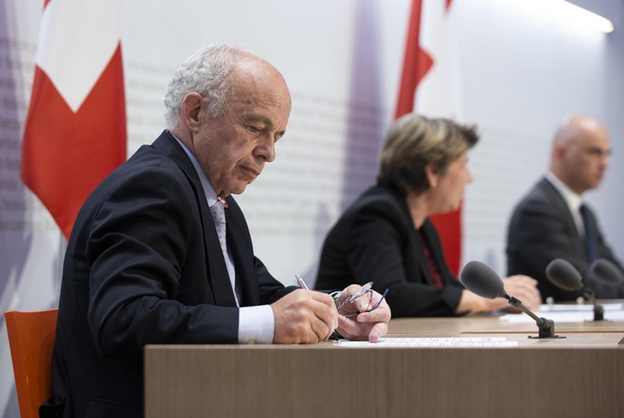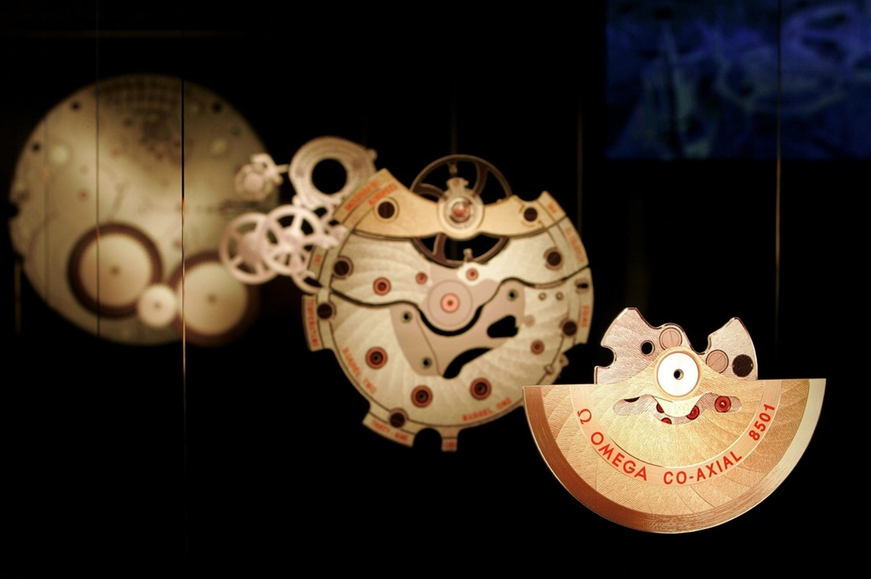Roche’s HQ, overlooking the Rhine river in Basel. Keystone / Georgios Kefalas It was the start of one of the most unusual cross-cultural marriages when Roche bought a controlling stake in Chugai Pharmaceutical for .4bn back in 2002, promising arm’s length management. In the course of the 18 months of negotiations it took to reach a deal, Chugai, a Japanese pioneer in biotechnology, presented a single sheet of paper with a list of conditions it would not budge on, the main ones being management autonomy and the continued listing of its shares in Tokyo. If anyone described the deal as a merger, Chugai, with annual revenue less than a tenth of its Swiss parent, quietly corrected this to “strategic alliance”, but few took those words at face value. Nearly two
Topics:
Swissinfo considers the following as important: 3.) Swiss Info, 3) Swiss Markets and News, Chugai Pharmaceutical, Featured, health, newsletter, Tatsuro Kosaka
This could be interesting, too:
Nachrichten Ticker - www.finanzen.ch writes Die Performance der Kryptowährungen in KW 9: Das hat sich bei Bitcoin, Ether & Co. getan
Nachrichten Ticker - www.finanzen.ch writes Wer verbirgt sich hinter der Ethereum-Technologie?
Martin Hartmann writes Eine Analyse nach den Lehren von Milton Friedman
Marc Chandler writes March 2025 Monthly
It was the start of one of the most unusual cross-cultural marriages when Roche bought a controlling stake in Chugai Pharmaceutical for $1.4bn back in 2002, promising arm’s length management.
In the course of the 18 months of negotiations it took to reach a deal, Chugai, a Japanese pioneer in biotechnology, presented a single sheet of paper with a list of conditions it would not budge on, the main ones being management autonomy and the continued listing of its shares in Tokyo.
If anyone described the deal as a merger, Chugai, with annual revenue less than a tenth of its Swiss parent, quietly corrected this to “strategic alliance”, but few took those words at face value.
Nearly two decades later, the partnership has not only survived but has prospered during the coronavirus crisis, with the two companies now trialling their rheumatoid arthritis drug Actemra as a potential treatment for people who are critically ill with Covid-19.
With investors pinning their hopes on the drug, Chugai passed a new milestone this week, replacing Sony as Japan’s fifth most valuable company as its shares hit another all-time record. The stock has risen more than 70 per cent since the start of the year, adding $40bn to its market capitalisation. Roche has added nearly $30bn.
The success of the Roche-Chugai partnership stands out in an industry where deals at far bigger prices — such as Johnson & Johnson’s $30bn purchase of Swiss biotech group Actelion in 2017 — have struggled to impress investors, but also because cross-border deals are particularly challenging in Japan. Companies can be resistant to foreign ownership and their natural instinct is to imagine themselves as buyer rather than bought.
Many alliances, even long-enduring ones such as that between Nissan and Renault, have faltered when faced with pressures such as a full merger, deeper technology transfer or, naturally, testing times of flagging financial performance.
Chugai says it had its own merger scare in August 2014. According to Tatsuro Kosaka, chief executive, that summer still brings back bitter memories of a panicked midnight call at a hot springs resort, informing him of media reports that Roche was set to offer $10bn to take full control. Cutting his holiday short, he drove back to company headquarters in Tokyo the next day.
Regardless of Roche’s intentions at the time, Mr Kosaka insists no talks about any such deal took place. He also rules out a full merger in the future.
Instead, Roche has its 60 per cent stake and three executives on Chugai’s nine-member board, but continues its hands-off approach. There is no one from the Swiss parent, for example, in the senior management team.
This type of alliance is now being touted as a model for cross-border deals, but autonomy does have a cost. Chugai needs to keep on developing innovative drugs — not just to boost the financial performance of both companies but also to maintain trust within Roche that it can leave its Japanese business alone.
So far the relationship has worked well. Chugai has delivered three key drugs — Actemra, haemophilia blockbuster Hemlibra, and lung cancer drug Alecensa — that have made a meaningful contribution to Roche’s global sales. At Chugai, sales have tripled and profits have increased more than 10-fold in the past 18 years, thanks in large part to Roche’s global sales network.
Royalty fees from the Swiss parent have also allowed the Japanese company to focus on decades of costly research it would not have been able to afford if it had gone it alone.
Actemra may be in the global spotlight now but Japan’s first monoclonal antibody drug was created with Osaka University after 20 years of research dating back to the 1980s. When it was first approved by Japanese authorities in 2005, it was to treat the rare Castleman disease before it was launched a few years later to treat rheumatoid arthritis.
During the current crisis, the Roche-Chugai alliance will be able to make use of combined manufacturing resources to ensure it can meet global demand for Actemra, depending on trial results. In addition to Chugai’s plant in Japan, special permission has been granted for Roche unit Genentech’s site in Oregon to undertake part of the drug production process.
The alliance has had a huge boost this year because of the hopes for Actemra, but investor enthusiasm is likely to wane without firm scientific proof of its effectiveness against Covid-19. And in the longer term, success will hinge more on whether Chugai can deliver another blockbuster.
The case of Nissan and Renault, although in a different industry, shows trust built over decades can abruptly collapse especially when a relationship is tied to certain individuals. But the Roche-Chugai alliance certainly provides useful lessons in these uncertain times for what it might take to keep a cross-border relationship intact.
Copyright The Financial Times Limited 2020
Tags: Chugai Pharmaceutical,Featured,Health,newsletter,Tatsuro Kosaka









